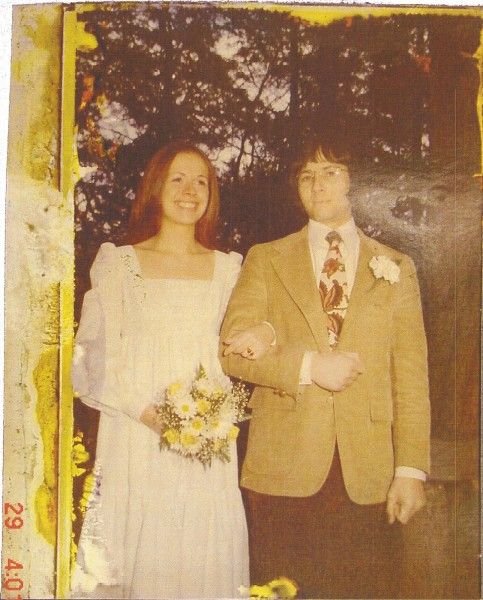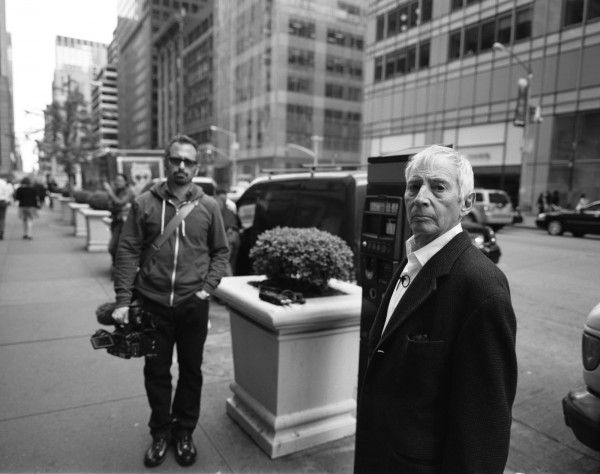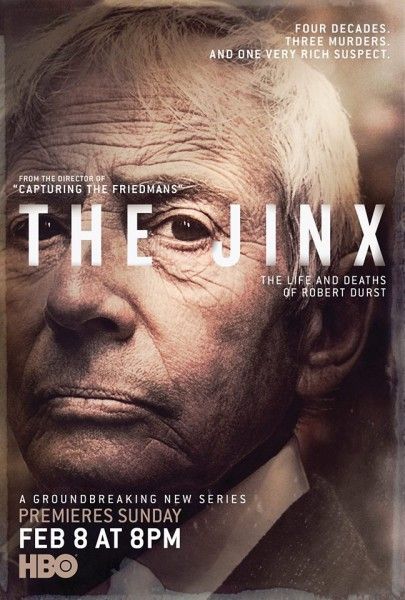The HBO documentary series The Jinx: The Life and Deaths of Robert Durst follows the increasingly bizarre story of the heir to a New York real estate fortune, who is also likely a serial murderer. The documentary comes from Andrew Jarecki, who made the film All Good Things, inspired by Durst's life (and, as the subtitle of the documentary states, the deaths he's probably responsible for). Durst reached out to Jarecki after the film premiered, and told him he would grant an exclusive interview. That extended interview, paired with archival footage, interviews, and reenactments, makes up The Jinx, a series that feels like Dateline meets Serial.
The Serial aspect is what HBO is surely hoping will hook viewers, and indeed, the first two (of an eventual six) episodes do have a curiosity to them that drives a desire to see what comes next. But like the wildly popular NPR radio series, The Jinx is true crime, which means there's a very deep darkness to it. Durst, now 71, was and is suspected of killing his first wife, Kathleen, who disappeared in 1982. He also admitted to the 2001 crime of cutting up and throwing away his neighbor's body in Galveston, Texas -- but not to killing him. And he was acquitted of that.
Durst is a fascinatingly strange figure. He's unapologetically eccentric, and comes off in his interviews as unconcerned and disconnected. He had a wealthy and tragic childhood, but he is not protected, necessarily, by his family. His younger brother has, in the past, hired bodyguards and taken out a restraining order on him, over fears for his own life.
The Jinx starts its story by giving the facts of the 2001 Galveston murder, which at first seems like a cut and dry case that leads directly to Durst. But there are already hints of the unusual, including a cross-dressing subplot and a gruesome series of photos of a dismembered corpse.
Jarecki does a great job of elevating the storytelling beyond a typical crime documentary, though, by artfully crafting his reenactments, as well as pairing the courtroom and other audio with engaging visual cues. The archival footage is dense, but the series never loses its quick pacing, nor does it become unwieldy under the deluge of information.
By the second episode, those interviewed really start to distinguish themselves and take on their own stories, particularly Kathleen's friends, who infuse huge amounts empathy into the series. Their emotional recollections of trying to find the truth about their friend's disappearance is heart-wrenching, but it helps really ground The Jinx in reality. But that reality also makes certain elements -- like the police glossing over numerous, glaring inconsistencies in Durst's statements -- all the more frustrating.
Jarecki is no stranger to this kind of compelling work, though, having also made the crime doc Capturing the Friedmans and produced 2010's breakout hit Catfish. Given The Jinx's particular subject matter, the docuseries will be catnip to true crime fans, with enough threads of mystery and conspiracy to attract those more into the esoteric, True Detective side (the title sequence is particularly evocative of it).
Those looking for closure or clear answer to truth of Durst and the murders will probably come up short (having only seen two episodes, this is just a guess), but the bizarre and immersive premise, paired with Jarecki's deft handling of the material (even with himself as part of the story) makes The Jinx a promisingly twisted journey, particularly for those too young to remember the details of the original cases.
Rating: ★★★★ Very Good
The Jinx premieres Sunday, February 8th and at 8 p.m. on HBO.




